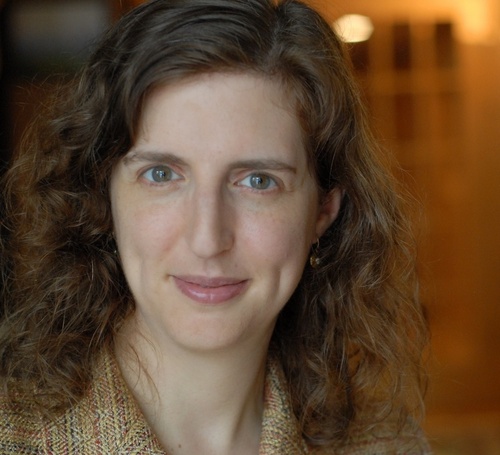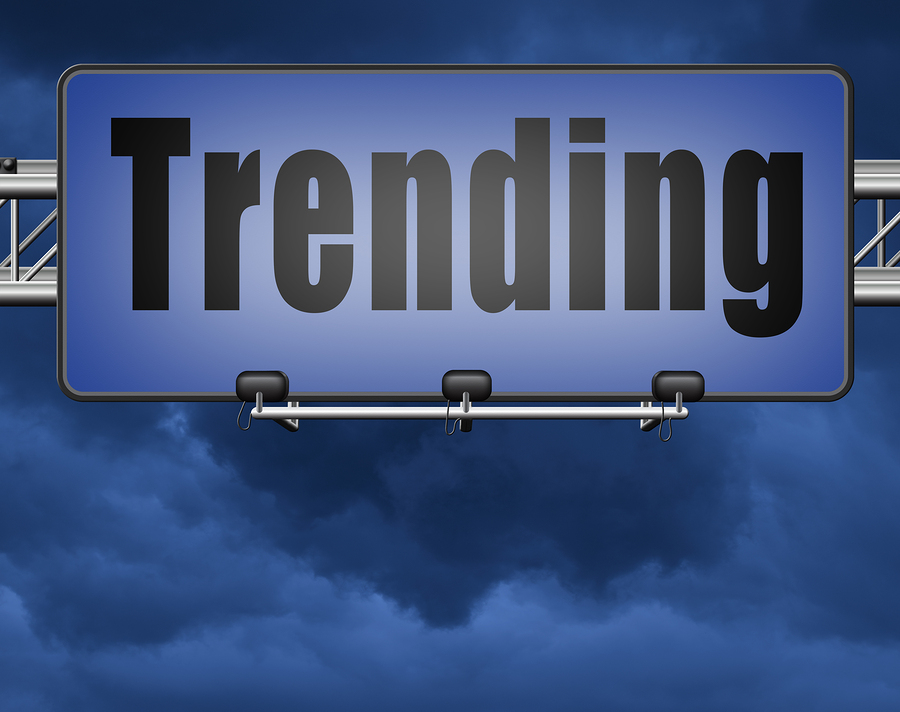Childfree Piper Hoffman has a thought-provoking post. While she sees the many “pros” of not having kids, she writes a forthcoming piece about some of the “cons” she feels…
The first are more objective in nature–she does not any kind of tax credit like parents do. She does not get paid leave from work like parents do. But then she talks about more heartfelt disadvantages, starting with how it saddens her that her “lifestyle hurts her family.” She gets that she could say hey it’s their problem, they want me to have kids out of some need or desire they have, but to her “the truth is that, at least for now, I feel like a disappointment to them and that saddens me. ”
Another disadvantage she feels is alienation from “peers and community.” Friends change or wane when the parents are raising kids. She won’t get to make new friends like parents do by having kids in common. Kids won’t be a potential path to becoming even closer to relatives.
Childfree blogger Ailanna does not necessarily relate to these, but puts hers forth: “the voluntary forsaking of a relationship and set of experiences that have the potential to be deeply satisfying, rewarding, and important” — emphasizing the word “potential.”
She also lists these “costs”: her free time outside of work she can do what she pleases, she’d gets to put her energy toward other things that the toward parenthood, she has a good quality of life from a financial standpoint, she’s an “evolutionary dead-end” and that is a good thing from an environmental resource standpoint, and her relationships with spouse, friends and pets don’t get neglected like they would if she were a parent.
Ok, these are tongue and cheek “costs” to be sure. But both got me revisiting my feelings on this. To me, it can be a disadvantage that the childfree may have to deal with disappointed relatives. We all have issues that need to be worked out with friends and family at some point, and this is one that can be unique to those who don’t have kids. It’s not so much the disappointment itself, but that we may need to deal with that disappointment, which can be difficult and sticky.
Another disadvantage can be having to face the challenge of maintaining friendships when parenthood enters the mix. It takes special kind of tending and cultivating from both parties to keep friendships strong, especially when the kids are young.
These two things are really unique challenges, more than disadvantages. But this one isn’t really a challenge–I’ve not shared as “big” of an experience with some dear girlfriends. Maybe we would be even closer if we had shared the experience of parenthood?
I think of my childfree girlfriends that are like sisters to me and remind myself that I have as deep of a relationship with them as I do with dear girlfriends who are parents. I also remind myself that while I was not a mother myself, I have been an ear, an ally, to parent-friends as they have dealt with parent challenges and this definitely has been an area of closeness.
So I land with no disadvantages, and see it more as facing certain kinds of challenges because of the decision I have made. Had I been a parent, I would have faced other challenges.
One thing for sure, I agree with Piper–that I am all for discussing the “disadvantages of decisions without condemnation” — between childfree to childfree or childfree and parents. More honest back and forth beween people with kids and without works toward mutual understanding–and that’s a good thing.
What about you? What do you see as disadvantages? Biggest challenges you might have not otherwise have faced?






If people were going to be totally honest, they’d also say that a big disadvantage is that no one will be there to support you when you’re old and infirm. This is the single biggest disadvantage and the elephant in the room that people seem to ignore. In Asia (I’ve lived in Japan for 22 years), this is an openly stated reason for having children. They expect their kids to help them when they’re elderly.
In the West, it’s not explicitly discussed since independence is encouraged, but a lot of people who don’t have children fear the future and being alone after their spouse passes away. I would be surprised if parents did not derive some small comfort from the knowledge that their progeny will be around when they are more vulnerable physically in the future.
Orchid64–thanks for the thoughts. I bet lots of folks might express this concern to be sure. And parents will be more inclined to believe their kids to be there for them when they are old. A few thoughts also come to mind–I can’t speak for Japan, but here there are more older folks in nursing homes than not (not being taken care of by family), and while it might be expected, many kids aren’t there for their parents when they are old the way the parents expected they would be. In researching the follow to Families of Two, I have run across interesting research that basically says it isn’t support from kids when old they contributes the most to emotional well being in later years, but instead one’s spouse or partner and feelings of financial security. It matters most if you spouse/partner is alive and you have enough money…also those without children tend to have larger “non-blood” support networks — friends their age and younger, who are there for each other. This is not to say that not having support when we’re old shouldn’t be a concern, but just that as childfree we have to go into that period of our lives differently. We don’t have the expectations parents can have — and with parents, they might not have this disadvantage, but may face unexpected disappointment…
Many friends I had over the years have drifted apart from me after they had kids. But I don’t see that as a negative. To me, it was their lifestyle choices which cost us our friendship, not mine. They were the ones who changed their way of living, not me. Our ways of living were alike before they made theirs different from mine. So if that makes us incompatible then so be it. I have no problem with that.
Laura, good reply to Orchid64’s tired old bingo, “Who will take care of you when get old?” The childed have no guarantee that their kids will be willing and able to take care of them when they grow old. And the childfree are plenty able to develop a network of friends to help them out when they grow old, as well as having more money available (money saved by not having kids) to pay for living assistance in some form.
As for me, I see absolutely NO disadvantages to being childfree, only advantages. And as you know from my guest post, it enabled me to get out of the rat race and retire 2 years ago at age 45. I cannot begin to think how lousy my life would be if I had kids.
Deegee–as always appreciate your thoughts. It really is about about the effects of the choices we make–whatever the choice, there will be things that happen as a result, and how we wrap our minds about it is what counts…
I’ve been thinking about the issue of children vs no children for a while – from the point of view of friendships/making new friends.
I think what is hardest for me is that no-children people don’t have the galvanizing experience that folks with children have. I personally know a lot of people (when i stopped to count them up) who do not have children. A couple of them are close personal friends. We have interests or history or whatever in common. But when i meet someone new, it isn’t always easy to have an immediate bond.
Folks with children, while they may not have much else in common, have the immediate bond of shared experience. If they had the child themselves (as opposed to adopting) they have the pregnancy and childbirth experience. They will have milestones of the children. And on and on for other experiences as well. When folks without children meet, we don’t have one common bond from which to speak.
This isn’t necessarily bad, just a fact. It means that we have to find other threads of connection which can take more work. And often the reasons that folks don’t have children can be emotionally charged. My husband and i are childless not by choice, and i hesitate to question someone about their lives/reasons (at least until i know them very well) because i know the emotional pain behind it.
In some ways, i think that friendships between folks without children can have a deeper relationship because it isn’t based on a circumstance but upon a mutual attraction/interest. Of course, that depends on the people.
So well said–parents automatically have a Huge thing in common, and childfree maintain friendships based on so many other things. Parent-childfree friendships need to find ways to connect on things they do not have in common (and it has to be from both parties), and out of a place of caring for that friend. To inspire continued connection, if that is important to me, I like the mindset that if I love my friend, I will always be interested in what her and her life even though it does not look like mine….
http://www.smh.com.au/opinion/society-and-culture/language-reflects-a-dark-side-of-surrogacy-20110120-19xxp.html
I suppose this is a bit off this topic but I thought it was interesting… given that this year there seems to be an awful lot of celebrity babies,or babies due perhaps Childfree is not really mainstream!
I suppose the link to disadvantages is that there are a whole hec of a lot of folks that don’t even have the idea of being in their consciousness!
It’s true that with any lifestyle choice there are positives and negatives. The goal is to pick what’s best for you rather than give in to pressure from others. I’m mostly happy with my decision to not have children, but I do feel a certain sadness for my own parents, who I know would love to be grandparents to a child of mine. I’m very fortunate that they have never pressured me to give them a grandchild, but it’s an unspoken message between us.
I love the idea of “discussion without condemnation” about advantages and disadvantages. I’ve read a lot of things from people who sound 100% childfree without any regrets or disadvantages at all, and a lot from people who are 100% glad they had kids, no regrets at all.
One childfree disadvantage, or maybe “challenge” would be a better word, is one that every major life choice has — I can’t live two lives at once. I’ll never really know exactly what my life would have been like with a kid. I think I have a very good idea, but there will always be a part of me that wonders “what if.” That’s just life, as far as I’m concerned. I don’t think it’s a horrible burden ro something to avoid. (I’m sure I would wonder “what if…” if I had a kid.)
I envy those people who never look back at all or never wonder how things could have been different, whether they had kids or not.
I do not understand this whole concept of having children because they will care for u in old age. Do u consider kids as an insurance policy? Putting an expectation on someone not even born? You will never know what circumstances that child has in future. Whether he/she is in position to support u? Whether the child is born as normal or not?
Isn’t it selfish to put an expectation on someone
Thanks for writing~I agree…one major pronatalist assumptions I talk about in The Baby Matrix has to do with this myth that your kids will be there for you when you are old. In a more agrarian time, this might have been more true, but it goes back to instilled beliefs that exhalt the role of parenthood and encourage reproductive conformity…in this case, it has to do with the supposed perks parenthood is supposed to bring later in life.
I’m working in healthcare right now (29 M) and have no desire to have children. I don’t have a girlfriend or wife and I doubt I’ll find someone that I want to spend the rest of my life with. Besides, this planet already has too many people as it is. I don’t feel narcissistic enough that I need to see a mini version of me running around this planet. While I don’t hold anything against those that have kids, it always seems like those most ill-suited to having kids are the ones reproducing. I fear for the future of our species.